Memorandum of Understanding between Ain Shams University and the Nuclear and Radiological Regulatory Body
Prof. Dr. Ayman Saleh, Vice President of Ain Shams University for Graduate Studies and Research Affairs, on behalf of Prof. Dr. Mahmoud El-Meteini, President of Ain Shams University, and Prof. Dr. Sami Shaaban Atallah, Chairman of the Nuclear and Radiological Regulatory Authority, signed a memorandum of understanding between the two sides in a number of research, educational, academic, technical, applied and cognitive aspects.
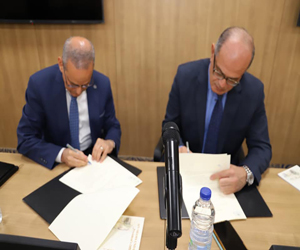 |
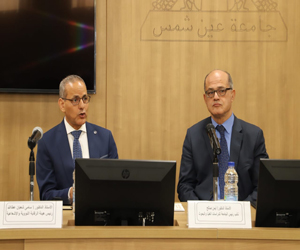 |
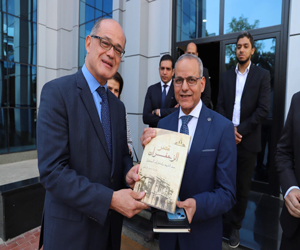 |
||
In his speech, Prof. Dr. Ayman Saleh is the cooperation between the two sides, especially since the body has a leading role in the future of the country, and stressed that Ain Shams University is open to all bodies and institutions inside and outside Egypt to serve the strategic goals.
He also reviewed a number of new entities recently established by the university, including the Center for Networks and Information Technology, the Center for Innovation and Entrepreneurship, and other promising entities that keep pace with the requirements of the current era.
And Prof. Dr. Sayed Shaaban reviewed the capabilities of the Nuclear and Radiological Regulatory Authority and a number of the most prominent activities provided by the organization to serve the community, pointing out that the organization is keen to employ capabilities and energies in line with the requirements of the times.
This was attended by Prof. Dr. Shahira Samir, Executive Director of the International Relations and Academic Cooperation Sector, Prof. Dr. Ahmed Al-Awadi, Director of the Center of Excellence for Sustainability at the university, Dr. Amir Ezzat Faculty of Science majoring in chemistry, Dr. Osama Ashraf, Faculty of Education, majoring in Physics, Dr. Abdel Fattah Suleiman, Director of the Center of Excellence at the Nuclear and Radiological Regulatory Authority, Dr. Mustafa Darwish, Head of the Department of Technical Support and Laboratories at the Nuclear and Radiological Regulatory Authority, Prof. Hosni, representative of the legal affairs of the authority, and Dr. Mahitab, the authority's external relations officer.
The cooperation between the two sides aims to market the objectives and mechanisms of the work of the Nuclear and Radiological Regulatory Organization to the student and academic community to increase knowledge and awareness and benefit from the experiences of building technical and administrative capacities, through visits to undergraduate students, graduate students and faculty members of the Nuclear and Radiological Regulatory Authority To get acquainted with its work system, laboratories and capabilities, which is known as the Observer ship system. The agreement also aims for the two parties to cooperate in organizing events, conferences and workshops in a way that achieves mutual benefit at the national, regional and global levels.
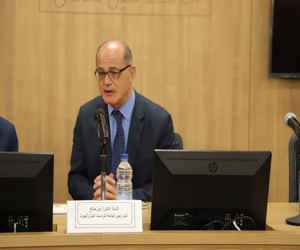 |
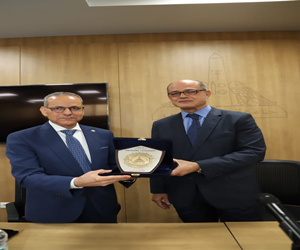 |
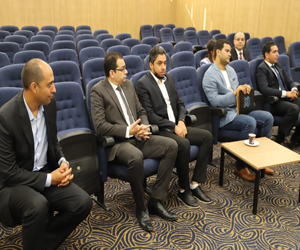 |
||
In addition to benefiting from the body's expertise in the crisis and disaster management, digital transformation in technical and administrative training processes, institutional knowledge management and integrated management systems.
As well as benefiting from the university’s expertise in the environmental, technical, legal and human sciences fields, in addition to the cooperation of the two sides in transferring knowledge to national authorities according to the need and in accordance with the capabilities of each party and in support of sustainability goals.
The agreement included the use of the experts of the Nuclear and Radiological Control Authority to review the contents of the master’s degree in nuclear physics and chemistry and the bachelor’s degree in related disciplines, in line with the labor market, in addition to the participation of the body’s experts in giving workshops to postgraduate students in the field of nuclear sciences with the provision of some Authority devices for researchers of Ain Shams University and the sharing of research results between the two sides.
The two parties also agreed to implement the academic outputs of the programs related to nuclear sciences with the aim of achieving the optimum benefit from the nuclear and radiological facilities and activities supervised by the authority, as the two sides cooperate within the framework of engineering software and codes for nuclear sciences.


.svg)




